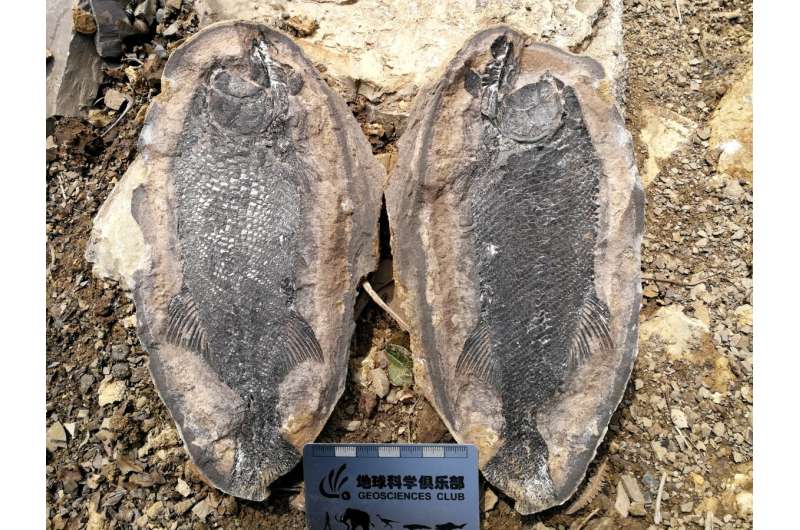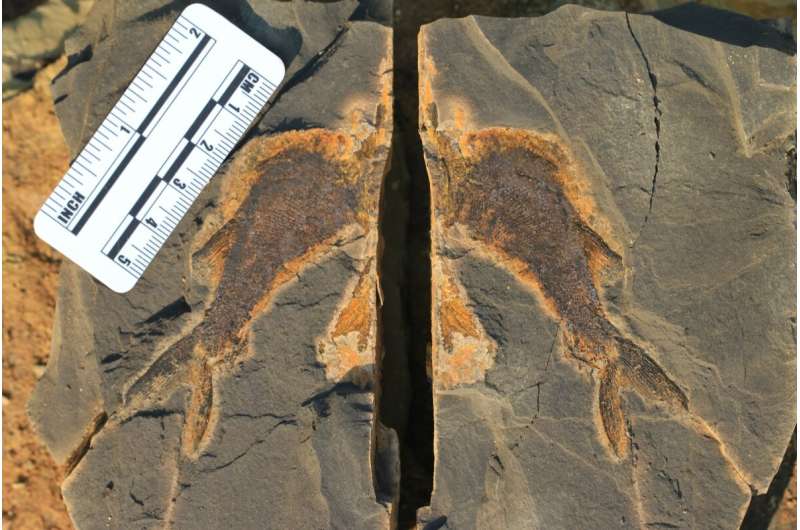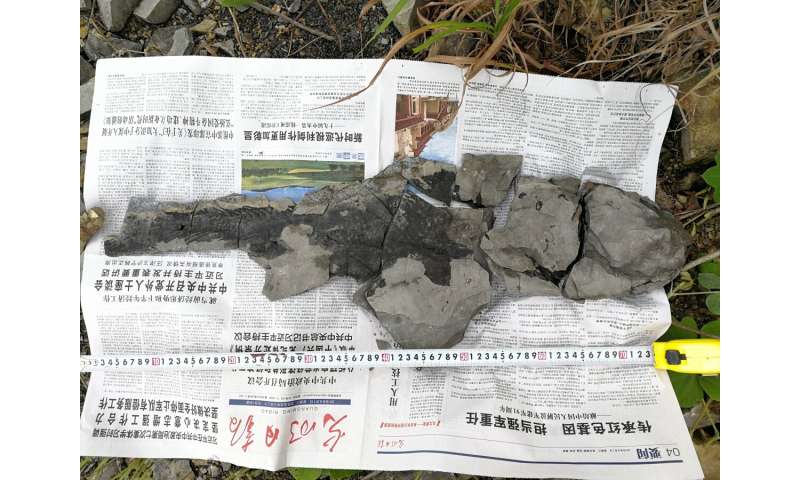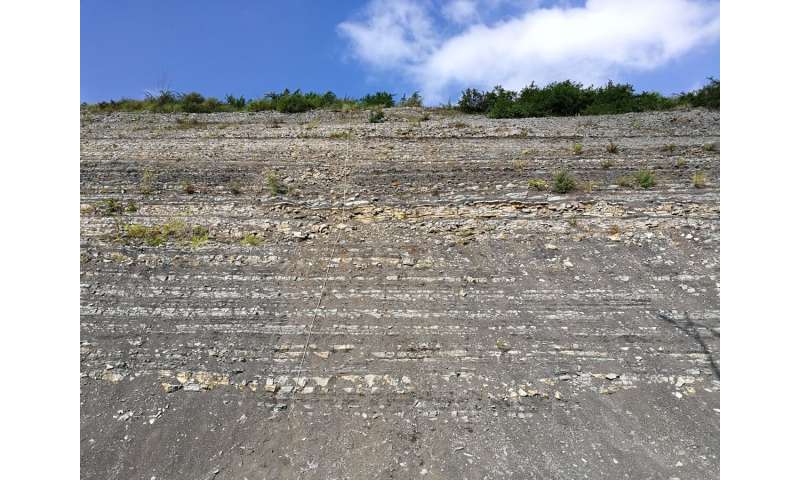This article has been reviewed according to Science X's editorial process and policies. Editors have highlighted the following attributes while ensuring the content's credibility:
fact-checked
peer-reviewed publication
trusted source
proofread
Fossil discovery reveals complex ecosystems existed on Earth much earlier than previously thought

About 250 million years ago, the Permian-Triassic mass extinction killed over 80% of the planet's species. In the aftermath, scientists believe that life on Earth was dominated by simple species for up to 10 million years before more complex ecosystems could evolve.
Now this longstanding theory is being challenged by a team of international researchers—including scientists from McGill University and Université du Québec à Montréal.
A fossilized ocean ecosystem
Until now, scientists have long theorized that scorching hot ocean conditions resulting from catastrophic climate change prevented the development of complex life after the mass extinction. This idea is based on geochemical evidence of ocean conditions at the time.

Now, the discovery of fossils dating back 250.8 million years near the Guizhou region of China suggests that complex ecosystems were present on Earth just 1 million years after the Permian-Triassic mass extinction, which is much earlier than previously thought.
"The fossils of the Guizhou region reveal an ocean ecosystem with diverse species making up a complex food chain that includes plant life, boney fish, ray-finned fish, crabs, lobsters, shrimp, and mollusks. In all, our team discovered 12 classes of organisms and even found fossilized feces, revealing clues about the diets of these ancient animals," says Morgann Perrot, a former postdoctoral researcher at McGill University, now at Université du Québec à Montréal.
-

Field photo of a Coelacanth fish fossil from the Gujiao section. / Photo de terrain d'un fossile de poisson cœlacanthe (section Gujiao). Credit: Xu Dai -

Rocks from the Guizhou region, deposited at the bottom of an ancient ocean during the Permian-Triassic transition and containing the newly discovered fossils (Gujiao section). Credit: Xu Dai
Challenging an age-old theory
Previously, it was thought that complex ecosystem would need 5 to 10 million years to evolve after an extinction. However, the researchers found that the specimens in the Guizhou region evolved much quicker than that by using radiometric dating to date the rocks where the fossils were discovered.
"All of this has implications for our understanding of how quickly life can respond to extreme crises. It also necessitates a re-evaluation of early Triassic ocean conditions," says Perrot, whose research focuses on Earth sciences and geochronology.
More information: Xu Dai et al, A Mesozoic fossil lagerstätte from 250.8 million years ago showing a modern-type marine ecosystem, Science (2023). DOI: 10.1126/science.adf1622. www.science.org/doi/10.1126/science.adf1622
Journal information: Science
Provided by McGill University




















